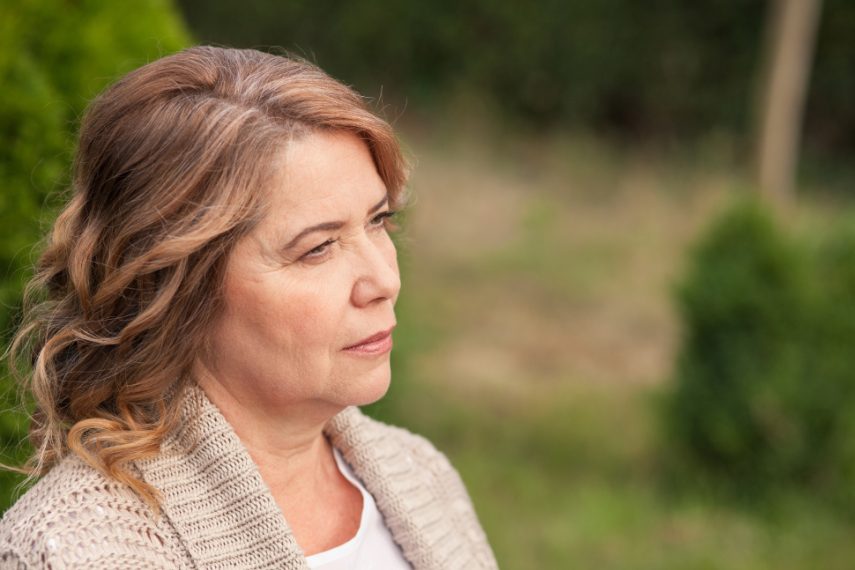Can Schizophrenia Be Caused by Trauma?

What causes schizophrenia? Can schizophrenia be caused by trauma? Mental health providers have effective ways of treating trauma and schizophrenia that can help those living with both improve daily functioning and reduce emotional distress. And seeking help via long-term, dual-diagnosis residential treatment can be the best way to support both your loved one’s mental health and your own—now and into the future.
Trauma and psychosis can each derail a person’s daily life by causing mental and physical disturbances which significantly disrupt even basic day-to-day functioning and skills. When experienced together, they can wreak emotional and mental havoc if left untreated.
When the onset of a psychotic disorder like schizophrenia happens to occur after a traumatic event, it can be tempting to blame the development of the former on the occurrence of the latter. Causality is comforting, in a way—being able to answer the larger question of why your loved one is living with the symptoms and challenges they currently face is somehow less daunting than having no answer at all.
But can schizophrenia actually be caused by trauma? And how can you help your loved one cope with both?
What Causes Schizophrenia?
Scientists identify a variety of causes and risk factors for schizophrenia. Research shows the disorder is brought on by a combination of neurological, genetic and environmental factors, including life experience. Schizophrenics have an imbalance of the neurotransmitters dopamine and serotonin in their brains, which is why they are often prescribed antipsychotic drugs. There may also be a genetic component; the risk factor of one person developing schizophrenia goes up if other close blood relations have been diagnosed with it.
Other factors which play a part in the development of schizophrenia include psychoactive drugs, such as methamphetamines or LSD. These drugs can cause brain damage, psychotic episodes, or trigger a schizophrenic onset.
Childhood factors may also affect onset and development. Fetuses exposed to malnutrition or viral infections in the womb may have a higher chance of getting schizophrenia. And childhood trauma can significantly change how children’s brains and thought processes develop and affect their adult lives.
Can Schizophrenia Be Caused By Trauma?
While the jury is still out on whether trauma directly causes schizophrenia, according to research conducted by the University of Liverpool, children who experienced trauma before the age of 16 were about three times more likely to become psychotic in adulthood than those who were randomly selected. The more severe the trauma, the greater the likelihood of developing illness in later life. They even found indications that the type of trauma experienced may determine what specific psychotic symptoms will manifest themselves later on.
It is also certainly true that trauma which occurs after the onset of schizophrenia can exacerbate psychotic symptoms—especially if it leads to the development of a co-occurring trauma disorder, such as PTSD. Separately, these conditions can pose serious challenges to a person’s ability to live a “normal” life—together, they can become overwhelming and debilitating without proper care and support.
If your loved one is struggling with the double burden of concurrent schizophrenia and trauma, know that there is help available to help them cope with both. Though their traumatic past cannot be erased—and no cure for schizophrenia currently exists—through proper treatment they can begin to heal and regain clarity and stability in order to lead a fuller, more independent life.
Begin Your Recovery Journey Today.
619-466-0547Seeking Support and Stability Through Long-Term, Dual-Diagnosis Treatment
Healing begins, always, with an accurate diagnosis. A long-term, dual-diagnosis treatment facility is the best place to establish such a diagnosis for your loved one, as the medical staff are specifically trained to identify and treat co-occurring disorders accurately and effectively. Residential treatment is a safe, healing environment where a team of psychiatrists, psychologists, therapists, and nurses will help you and your loved one understand and address the roots of both their trauma and their psychosis.
Residential treatment addresses all aspects of the healing process by taking a comprehensive approach to recovery. Psychiatric experts will work with your loved one to find the right medications and doses to manage and mitigate the effects of trauma and the symptoms of schizophrenia. A variety of therapeutic options, including cognitive-behavioral therapy and experiential therapies, will help support your loved one’s recovery on a mental and emotional level and teach them healthy coping strategies to increase their quality of life and level of independence. Social therapies, such as group therapy and family therapy sessions, will help them work on improving social skills and healing familial relationships.
Furthermore, long-term residential treatment provides a structured, daily routine that can help people get out of living in “crisis mode” and start living with greater stability. It eliminates external distractions and potential triggers, giving people the time they need to focus on doing the healing work they need to get better. And once they return home from residential care, you and your loved one will receive continued support through ongoing care programs to help ensure the healing continues long after the initial inpatient program ends.
Hope isn’t out of reach—and neither is help. Reach out today to find an appropriate long-term treatment program that will provide you and your loved one with the care and support you both need to move forward toward a brighter, more balanced future anchored in love, understanding, and compassion.
BrightQuest is a long-term residential treatment program for people struggling with mental health disorders as well as co-occurring substance use disorders. Contact us to learn more about our renowned San Diego-area program and how we can help you or your loved one begin the journey toward recovery.






